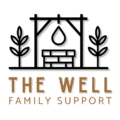When the Diagnosis Comes Later in Life
When a woman receives a diagnosis of autism spectrum disorder (ASD) in adulthood—especially while balancing roles like motherhood, partnership, or a professional career—it can feel both validating and overwhelming.
Many women report years of masking their differences, struggling with burnout, and feeling “different” without knowing why. An adult diagnosis often brings relief and clarity, but it can also raise new questions about identity, self-care, and relationships.
This guide highlights autism-related books, blogs, and professional resources designed to empower women, support their loved ones, and guide therapists. All recommendations use person-first and strengths-based language to affirm that each individual is more than a diagnosis—they deserve understanding, compassion, and respect.
Resources for Autistic Women Exploring Identity and Daily Life
These books and blogs are written specifically for women diagnosed with autism, offering insight into identity, masking, parenting, and navigating daily experiences through a neurodivergent lens.
- Women and Girls with Autism Spectrum Disorder by Sarah Hendrickx
A practical guide for women exploring adult diagnosis, relationships, parenting, and everyday life. - Divergent Mind by Jenara Nerenberg
Explores how neurodivergence—including autism—often goes unrecognized in women due to masking and gender bias. - Spectrum Women: Walking to the Beat of Autism
Edited by Barb Cook and Dr. Michelle Garnett, this collection shares essays by autistic women on identity, trauma, parenting, and self-discovery. - I Think I Might Be Autistic by Cynthia Kim
A validating, approachable guide for those newly considering or diagnosed with autism. - Autistic Mama Blog
A relatable blog by a mother with autism, sharing insights on parenting, advocacy, and neurodivergent life.
Resources for Mothers with Autism Spectrum Disorder
Motherhood can be deeply meaningful—but also emotionally and sensory intense, particularly for autistic women managing overstimulation and burnout. These resources offer perspective and support:
- Mothering Through the Darkness edited by Jessica Smock & Stephanie Sprenger
While not autism-specific, this collection of essays resonates with mothers navigating emotional strain, identity shifts, and sensory overwhelm. - Neurodivergent Lou (YouTube)
A content creator sharing authentic reflections on parenting, identity, and sensory needs as an autistic mother.
Resources for Spouses and Partners of Autistic Women
Supporting a partner with autism requires compassion, patience, and an understanding of neurodivergent communication and sensory needs. These tools help couples strengthen empathy and connection:
- Loving Someone with Asperger’s Syndrome by Cindy Ariel, PhD
A compassionate guide for neurotypical partners of autistic individuals, offering communication strategies and relational insight. - NeuroTribes by Steve Silberman
A powerful history of autism’s evolution, community, and acceptance. - Yo Samdy Sam (YouTube)
Real-life videos and Q&A sessions—especially those featuring her partner—exploring mixed-neurotype relationships. - AANE (Asperger/Autism Network)
Offers coaching, couples programs, and online support groups for families and partners. https://www.aane.org
Resources for Therapists Supporting Autistic Women
Therapists working with autistic women must understand masking, trauma, and gendered experiences that shape emotional health. These professional resources promote neurodiversity-affirming, strengths-based care:
- Neurodiversity Affirmative Practice in Therapy by Monica Driscoll Beatty
A clinician’s guide to ethical and affirming approaches to neurodivergent clients. - Autism in Adults: Diagnosis, Identity and Equality by Luke Beardon
Emphasizes identity-first, strengths-based care for autistic adults. - Unmasking Autism by Dr. Devon Price
A research-informed look at masking, authenticity, and the process of reclaiming one’s identity. - Therapist Neurodiversity Collective
A professional network offering education and training in non-pathologizing, affirming therapy. https://therapistndc.org
Final Thoughts
Receiving an autism diagnosis in adulthood—especially as a woman navigating motherhood and emotional labor—can be transformative.
Whether you’re an autistic woman exploring identity, a partner seeking understanding, or a therapist learning to provide affirming care, these resources encourage self-awareness, connection, and empowerment.
At The Well: Family Support, we believe every individual deserves compassionate, evidence-informed care that honors their neurodivergent strengths.
You are not alone—and these tools can help you move forward with clarity and confidence.





